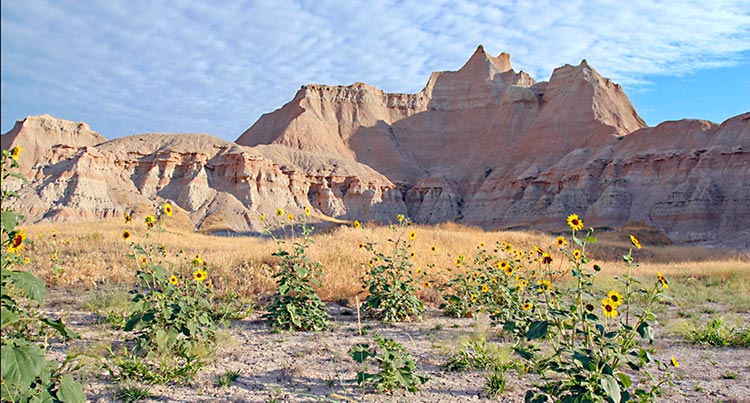
Yat Michael
JUBA, South Sudan (Morning Star News) – A judge in Sudan ruled yesterday that there was enough evidence to charge two South Sudanese pastors with crimes punishable by death.
The charges, including espionage and promoting hatred among or against sects, were formed months after authorities arrested Yat Michael in December 2014 and Peter Yein Reith in January in response to their efforts to encourage a North Khartoum church in the face of a government-aided take-over of the church’s property.
On Wednesday (July 1), authorities arrested the pastors’ attorney as he tried to defend the government’s demolition of a part of the church property. Even before his arrest, the court had previously barred him from meeting with his clients.
Given the Islamist bias in Sudan’s court system, yesterday’s ruling appalled but did not surprise observers who have watched as officials from Sudan’s National Security and Intelligence Services (NISS) have presented the same “evidence” taken from the pastor’s computers—maps and other easily accessible documents—at each hearing over the past two months. The American Center for Liberty and Justice (ACLJ) reported that NISS also presented as evidence a study guide on NISS allegedly found on one of laptops that NISS agents confiscated, and that the pastors told the judge they do not know how the guide got onto the computer.
“Besides these documents, the only evidence brought by the prosecution against the Christian pastors was a sermon Pastor Michael gave, a sermon that was supported by Christian doctrine shared by their common denomination,” Tiffany Barrans, international legal director at the ACLJ, said in a statement.
The charge of spying (Article 53 of the Sudanese Penal Code) is punishable by death, life imprisonment or prison and confiscation of property. The charge of promoting hatred among or against sects (Article 64) is punishable by up to two years in prison. The pastors are also charged with undermining the constitutional system (Article 50), punishable by death, life imprisonment, or imprisonment and confiscation of property; disclosure and obtaining information and official documents (Article 55), punishable by two years in prison or a fine; blasphemy/insulting religious creeds (Article 125), punishable by one year of imprisonment or a fine or no more than 40 lashes; disturbance of the public peace (Article 69), punishable by six months of prison, or a fine or no more than 20 lashes; and joint acts in execution of a criminal conspiracy (Article 21).
The judge told the defense attorney he had 10 to 15 minutes to prepare his defense, according to the ACLJ. When the attorney said he needed more time, a hearing was set for July 14.
The pastors’ attorney requested access to his clients at the end of Thursday’s hearing, but the judge said he had the authority only to grant him visitation in court. The right to access to an attorney is guaranteed under Sudanese law.
Attorney, Pastor Arrested
The pastors’ attorney, Mohaned Mustafa, was arrested on Wednesday (July 1) along with a pastor of the church that has been at the center of the legal conflicts, Khartoum Bhari Evangelical Church.
Police arrived at the property with a demolition team and a government order to destroy one section, so the church summoned its attorney, Mustafa, according to the ACLJ. When he arrived, he reviewed the order and pointed out that police were instructing the team to demolish one section of the church compound, while the government order said to destroy another, ACLJ reported.
“He spoke with the engineer on the scene and reviewed the land plot map. Both agreed that they had been pointed to the wrong area,” ACLJ reported. “The engineer took the matter up with the police present, who were angered by the situation. The police then arrested Pastor Hafez and put him in handcuffs. Rather than taking him to the police station by car, which is roughly 200 meters from the church, the police forced the pastor to walk to the police station, parading him through the public market with his hands shackled.”
While the pastor was in detention, authorities struck him on the side of his head with a gun with such force that he required x-rays after his release, according to Middle East Concern.
Mustafa remained and observed as police told the engineer that they did not care if their demolition directions were incorrect. Police soon told the attorney he had no right to be there, and when he calmly refuted the claim, officers arrested him, ACLJ stated. Mustafa and the pastor were released on bail, charged with obstructing a public servant during the course of his duty (Article 99), punishable by up to six months imprisonment, a fine or both.
On June 4, the two South Sudanese pastors were transferred from a low-security prison in Omdurman to the high-security Kober Prison in Khartoum North and are being held in separate cells. Michael, 49, was arrested after speaking at the church service in Khartoum, and the 36-year-old Reith was arrested on Jan. 11 after submitting a letter from leaders of their denomination, the South Sudan Presbyterian Evangelical Church (SSPEC), inquiring about the whereabouts of Michael.
The Khartoum Bahri Evangelical Church that Michael had encouraged in December was the subject of government harassment, arrests and demolition of part of its worship center as Muslim investors have tried to take it over. NISS is manned by hard-line Islamists who are given broad powers to arrest Christians, black Africans, South Sudanese and other people lowly regarded in the country that President Omar al-Bashir has pledged will be fully Arabic and Islamic. The charges appear to be based solely on the two pastors’ nationality, race and faith, sources said.
Sudan fought a civil war with the south Sudanese from 1983 to 2005, and in June 2011, shortly before the secession of South Sudan the following month, the government began fighting a rebel group in the Nuba Mountains that has its roots in South Sudan.
On Oct. 5, 2013, Sudan’s police and security forces broke through the church fence, beat and arrested Christians in the compound and asserted parts of the property belonged to a Muslim investor accompanying them. As Muslims nearby shouted, “Allahu Akbar [God is greater],” plainclothes police and personnel from NISS broke onto the property aboard a truck and two Land Cruisers. After beating several Christians who were in the compound, they arrested some of them; they were all released later that day.
Harassment, arrests and persecution of Christians have intensified since the secession of South Sudan in July 2011, when Bashir vowed to adopt a stricter version of sharia (Islamic law) and recognize only Islamic culture and the Arabic language. The Sudanese Minister of Guidance and Endowments announced in April 2013 that no new licenses would be granted for building new churches in Sudan, citing a decrease in the South Sudanese population.
Sudan since 2012 has expelled foreign Christians and bulldozed church buildings on the pretext that they belonged to South Sudanese. Besides raiding Christian bookstores and arresting Christians, authorities threatened to kill South Sudanese Christians who do not leave or cooperate with them in their effort to find other Christians (see Morning Star News).
Due to its treatment of Christians and other human rights violations, Sudan has been designated a Country of Particular Concern by the U.S. State Department since 1999, and the U.S. Commission on International Religious Freedom recommended the country remain on the list in its 2015 report.
Sudan ranked sixth on Christian support organization Open Doors’ 2015 World Watch List of 50 countries where Christians face most persecution, moving up from 11th place the previous year.
A special message from the publisher…
 Dear Reader, our hearts are deeply grieved by the ongoing devastation in Iraq, and through this we have been compelled to take a stand at the gates of hell against the enemy who came to kill and destroy. Bibles for Iraq is a project to put Arabic and Kurdish audio Bibles into the hands of Iraqi refugees—most of whom are illiterate and who have never heard the gospel. Will you stand with us and make a donation today to this important effort to bless the Iraqi people? Click here to send a Bible to a refugee >>
Dear Reader, our hearts are deeply grieved by the ongoing devastation in Iraq, and through this we have been compelled to take a stand at the gates of hell against the enemy who came to kill and destroy. Bibles for Iraq is a project to put Arabic and Kurdish audio Bibles into the hands of Iraqi refugees—most of whom are illiterate and who have never heard the gospel. Will you stand with us and make a donation today to this important effort to bless the Iraqi people? Click here to send a Bible to a refugee >>
{loadposition user99}



